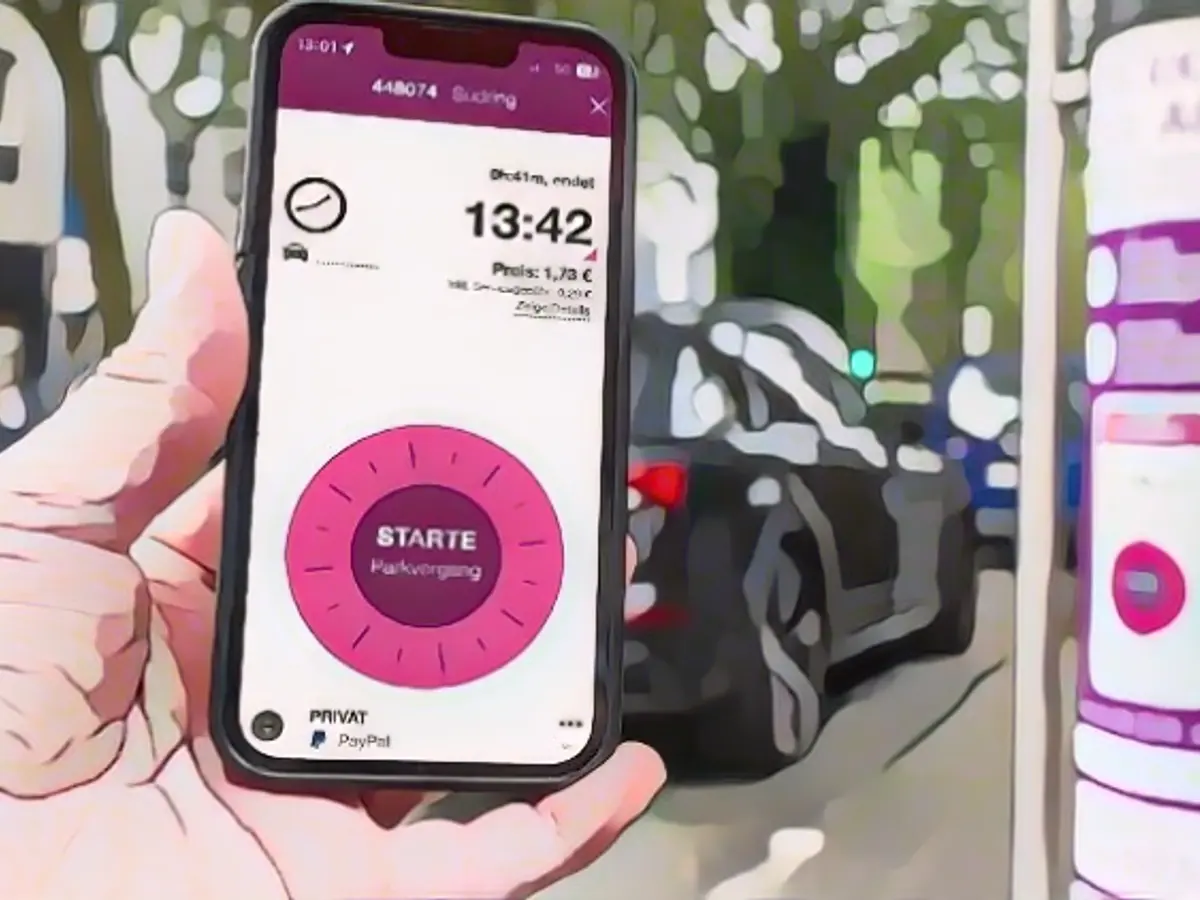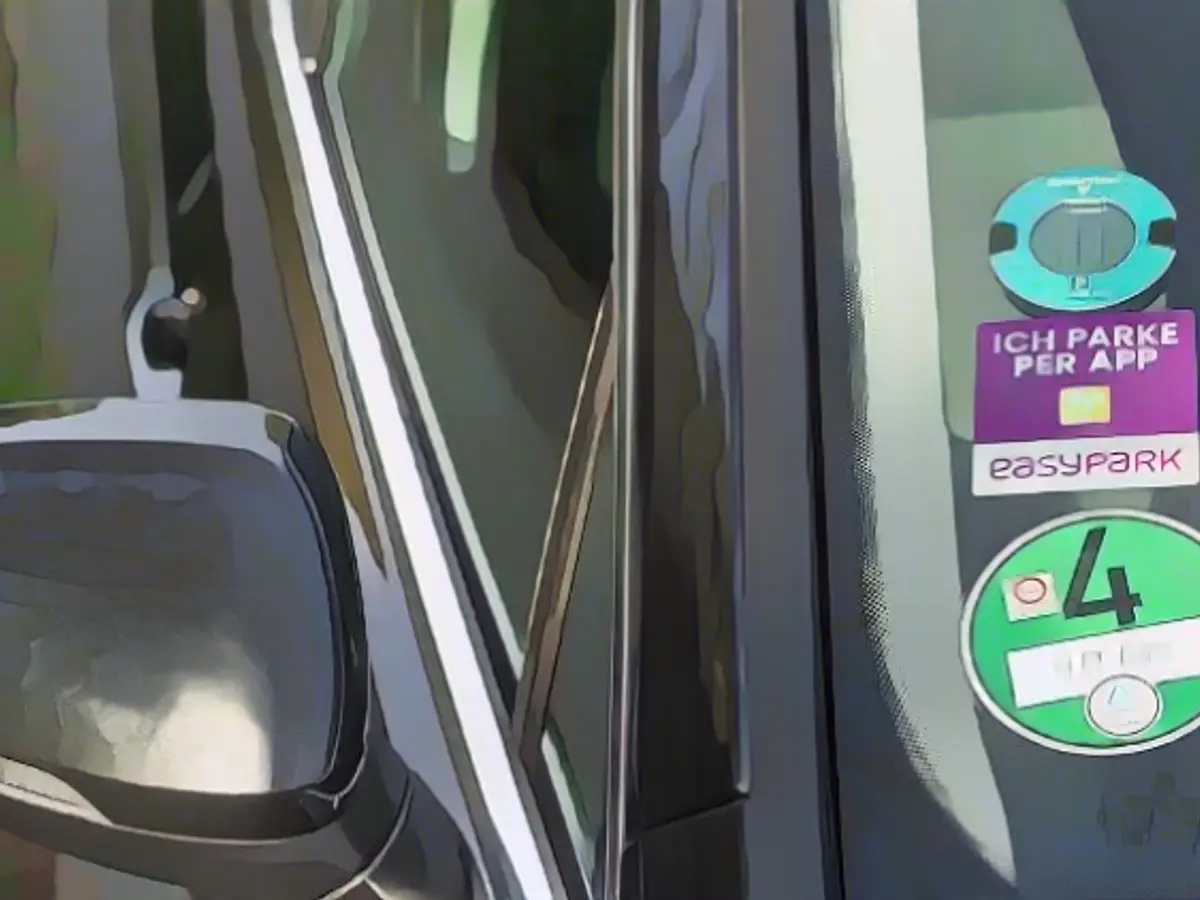"We want to completely digitize the parking space"
The Easypark Group is conquering Europe's parking lots with its app. In the podcast "Die Stunde Null", Germany CEO Nico Schlegel talks about digital parking fees, an algorithm for free parking spaces - and the question of how cities benefit from this.
What exactly does parking at Easypark cost? The website states a fee range of 0 to 15 percent.
Nico Schlegel: Basically, it is 15 percent of the parking fee. However, there are cities that pay the fee themselves and then the customer pays nothing. In most cases, however, you park and pay 15 percent of the parking fee to us.
Do you have to negotiate individually with cities and municipalities about where they are involved? Isn't that very time-consuming?
Yes, that's true. It requires a lot of resources. That's why we have a sales department that talks to the cities. But we are also a member of an association of cell phone parkers that holds collective talks with the cities. We prefer this open model. If the city prefers to have an exclusive contract, then we conclude one. In the best case scenario, all Handypark providers can participate and the customer can choose which app they like best.
The field of Handypark apps has thinned out. You yourself took over ParkNow in 2022, the joint provider of Daimler and BMW at the time. How was it integrated?

It was a global takeover. We therefore first tried to create the technical requirements in Central Europe. So we expanded our technology. And now we still have to implement this in America. But the development is very positive and we are satisfied with the acquisition.
How many parking processes are already carried out via cell phone in Germany? How big is this market?
First of all, digital payment was a bit late in Germany overall. The Scandinavians were much quicker. The turnaround actually came in the last three years, partly due to coronavirus. There was an enormous momentum, including for cell phone parking. Interest from cities has increased and we now have around 850 cities in Germany that offer this service. But the number of users is also increasing. There are cities where, on average, more than one in three parking transactions is digital. Three years ago, it was a completely different story.
Isn't cell phone parking a typical case of consolidation? It'srather difficult to imagine that several providers will coexist in the long term.
We firmly believe that there will always be new providers. Some may disappear, but there will always be new ones. In most countries, competition is actually increasing.
Easypark also uses its technology to guide drivers to free parking spaces. How does that work?
The first step is to completely digitize the parking space. So you have to know exactly where there are which parking spaces in which size. To do this, we have vehicles equipped with lasers that can detect this parking space. We also need to know when you can park in this parking space.
So you're sending a kind of Google car for parking spaces around the area?
Yes, exactly. We have done this in a few cities in Germany. You can use different fleets that collect this kind of data. They also record where there are free parking spaces. We collate this data in anonymous form and use it to build an algorithm. It is important to be able to estimate what is likely to happen to a parking space that is free now. What will it look like in five minutes?
So you can't guarantee a free parking space?
No, but we can make a forecast with a high probability.
Your offer facilitates car traffic in cities and makes the car more attractive again. That doesn't make cities more liveable, but rather goes in the other direction.
That's why we want to expand our service. A third of air pollution is caused by parking search traffic. So if we help drivers to find parking spaces more quickly, we are also helping cities to try and make the air cleaner. We also provide cities with information on where parking spaces can be sensibly reduced or reallocated.
But that's not what your business model is about.
It looks that way at first glance. But in fact, many cities are expanding their parking space management. At the moment, there are still many parking spaces where you don't have to pay. There is now an influx of paid parking spaces. That's why we don't see a problem for us in the next few years.
Listen to thenew episode of "Die Stunde Null"
- How Easypark works in private garages
- Why fewer parking spaces could also be good for business
- What role charging stations for e-cars play in the concept
You can find all episodes directly on RTL+, Apple or Spotify or via Google.
Read also:
- Why there is still no EU funding for green Saar steel
- 3 billion Saar Fund is unconstitutional
- The chemical industry has little confidence
- Politicians at a loss after shock news
After digitizing the parking space, Easypark can guide drivers to available car parking spots using their app. This can help reduce traffic and air pollution caused by searching for parking, making cities more livable.
Following the integration of ParkNow, Easypark customers now have access to a wider range of parking apps, allowing them to choose their preferred option.
Source: www.ntv.de








